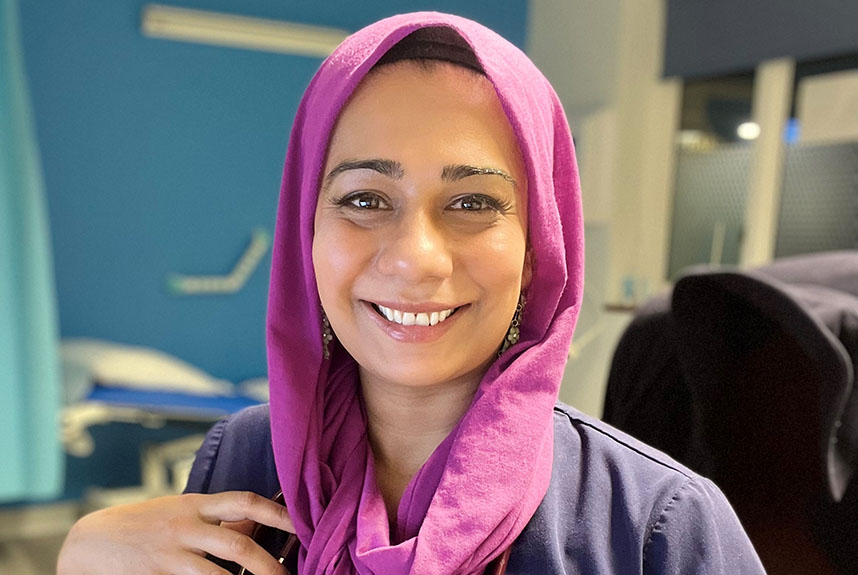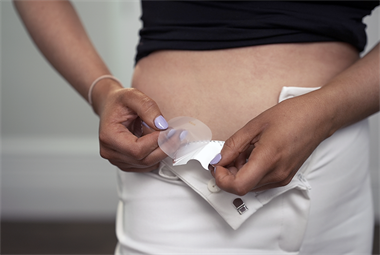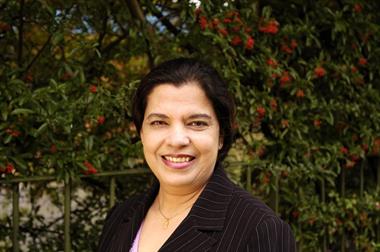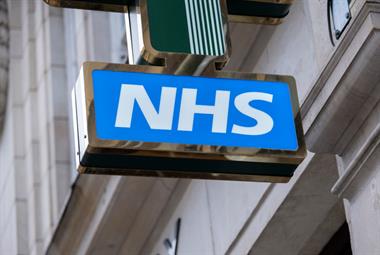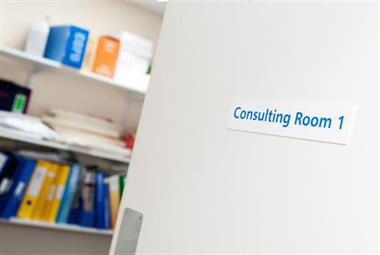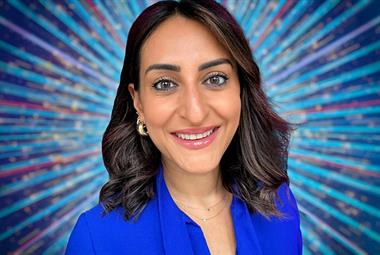This article has been co-created and funded by GSK as part of a partnership with The Eve Appeal and Peaches Womb Cancer Trust.
To many, gynaecological health remains a taboo subject with some patients feeling uncomfortable or afraid when looking to make an appointment to discuss their concerns. For some communities, having the confidence or knowing the right terminology to discuss gynae issues might be a stumbling block.
For example, I often see in South Asian communities that words for breasts, vulva or vagina are derogatory words that women feel too embarrassed to use.
Speaking to gynaecological cancer charities such as The Eve Appeal, fear and anxiety around gynae appointments are all too common. Athena Lamnisos, chief executive of The Eve Appeal, says: ‘So often we hear that people haven’t heard of any of the gynaecological cancers and find it difficult to recognise what might be abnormal, let alone coming forwards and being able to have open discussions with their doctor.'
As healthcare professionals, we play a vital role in empowering people from across all communities to take control of their health, and feel confident seeking support for their gynaecological concerns. As Dr Helena O’Flynn, chair of trustees for Peaches Womb Cancer Trust explains: ‘Early diagnosis of gynaecological cancers is associated with improved survival outcomes, therefore it is imperative that we make the journey for those who present with gynaecological concerns as comfortable as possible.’
Importance of awareness campaigns
Reinforcing the signs and symptoms of gynaecological cancer through symptom awareness campaigns, particularly during Gynaecological Cancer Awareness Month, is essential to empower people to visit their doctor.
Not only this, but having targeted awareness campaigns to reach specific communities is critical to ensuring equality of healthcare is offered to all. However, we have to be mindful of the reasons why perhaps many of these patients may have been reluctant to visit their GP in the past.
In this article, I share a few adaptable tips and communication techniques that can instantly encourage patients to feel at ease in the lead-up to, and during their gynae appointments.
Pre-appointment
Although access to healthcare varies across the UK, a patient's journey will usually begin by contacting their local GP – the reason why preparing the reception team is so important.
An example might be preparing a safe space for patients who feel uncomfortable discussing symptoms with the front desk for fear of being overheard by others. Or when a postmenopausal woman rings to say she’s experiencing vaginal bleeding, the call can be triaged appropriately to ensure she feels heard.
We also know some people still prefer to call rather than book appointments online. For patients who decide to speak on the phone, be aware that they may not feel comfortable speaking openly in certain environments and consider asking questions that require a ‘yes’ or ‘no’ answer.
This also includes giving them time to find a private space before asking questions about the nature of the appointment. Consider also offering a pre-examination appointment to patients who would like to discuss the process of examination in more detail.
It may also be worth letting patients know that, where possible, they can request a female GP or nurse. Patients who seem particularly nervous could be offered the option of booking a double appointment to give them more time (if feasible).
Physical examinations
With regards to preparing patients for the next steps, you may want to advise them that a physical examination may be required, and that wearing loose clothing can make the experience more comfortable for them.
Additionally, you can remind the patient that for their comfort, they can bring a friend, family member, or be offered a chaperone before a potentially intimate examination.
Prioritising the comfort of the patient is paramount for gynaecological examinations. For those who have vaginal atrophy or vulval lichen sclerosis, I always recommend that they take their own vaginal moisturiser or vaginal lubrication that suits their skin to the appointment.
Inclusivity in gynaecological health
Inclusivity plays a critical role in ensuring that everyone has the opportunity to receive proper care, support, and information. This includes, but is not limited to, patients with disabilities, mental health issues, and those from diverse cultural backgrounds.
To ensure that healthcare professionals are always providing effective and empathetic care to patients, training in cultural competency and disability awareness is essential. This can be found online through organisations such as the Royal College of General Practitioners (RCGP) and Royal College of Obstetricians and Gynaecologists (RCOG).
By being aware and addressing any barriers to healthcare collectively, we can work towards ensuring that all individuals have the opportunity to receive timely and effective care for their gynaecological concerns. Creating a more accessible and equitable healthcare system requires collaboration among healthcare providers, policymakers, community organisations, and patients themselves.
Communication is key
Examinations can be challenging for many people, including those who have experienced sexual trauma, birth trauma, are transgender, have vaginismus or vulvodynia, or who are from a culturally or religiously conservative background.
To support these patients, I find it helpful to be transparent and discuss each stage of the examination in advance (or step by step), making sure to ask for consent and explain what you are about to do and why, allowing patients to mentally prepare and ask questions if needed. For example: 'I am now going to insert the speculum, is that OK?’
Being aware of the patient’s body language is also important. If they appear uncomfortable, try asking some gentle open questions to understand the cause of their discomfort. They may simply be nervous, in which case this technique will help put them at ease.
Finally, some patients may have preferred words for their gynae anatomy such as ‘down there’, or may not be confident or aware of certain terminology. Asking follow-up questions to clarify what they mean is useful in ensuring that the correct anatomical areas are examined. Using props or diagrams may also be helpful to explain a diagnosis to a patient.
As healthcare professionals we play an active role in ensuring patients feel as comfortable as possible prior to, and during their gynae appointments. By breaking down the barriers that are making patients reluctant to visit their GP in the first case, we can encourage everyone to take control of their health, ultimately improving earlier diagnosis of gynaecological cancer.
- Dr Nighat Arif, is a GP in Buckinghamshire who has specialised in women’s health and family planning for over 15 years
_3.png)


The Eve Appeal
The Eve Appeal is the only UK charity raising awareness and funding research into the prevention and earlier diagnosis of all five gynaecological cancers- womb, ovarian, cervical, vaginal and vulval. It was set up to save lives by funding ground-breaking research focused on developing effective methods of risk prediction, earlier detection and screening for these little-known and under-funded cancers.
The world-leading research that we fund is ambitious, but our vision is simple; a future where gynaecological cancers are diseases of the past.
Peaches Womb Cancer Trust
Peaches Womb Cancer Trust is the UK’s first charity dedicated solely to womb cancer. Our aim is to improve the lives of those with and affected by womb cancer by supporting and advocating for patients, raising awareness and funding and promoting research.
GSK
GSK is a global biopharma company with a purpose to unite science, technology, and talent to get ahead of disease together. Find out more at gsk.com
Job Number: NP-GB-AOU-ABST-230001
Date of Preparation: September 2023

